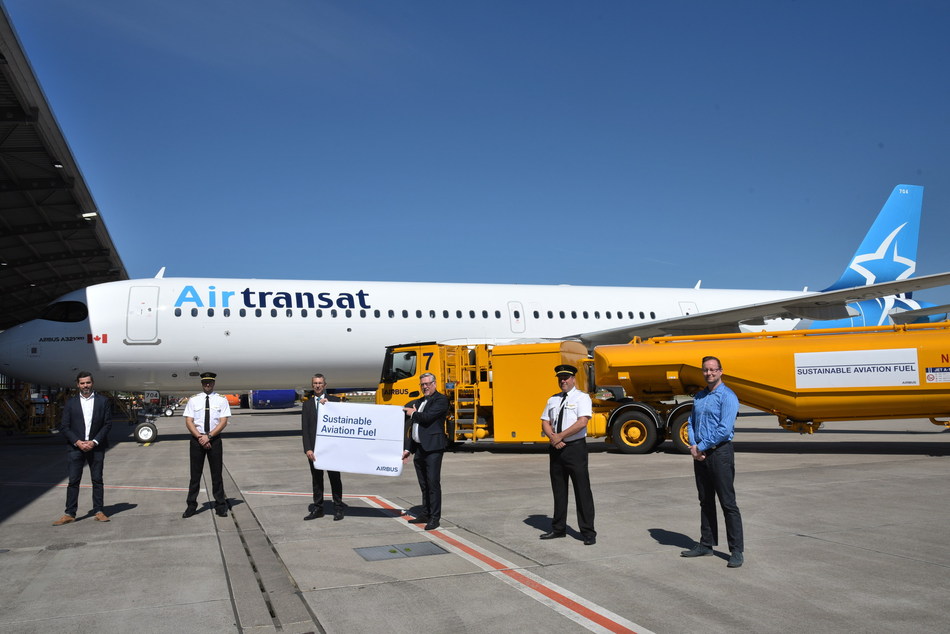
Air Transat makes its first two delivery flights with sustainable aviation fuel blend
by CM Staff

The fuel is powering Airbus A321neoLRs, which consume 15% less fuel than the previous generation of Airbus jets

First delivery of an Airbus A321LR for Air Transat with sustainable aviation fuel. PHOTO: Air Transat
MONTREAL — Air Transat made its first two delivery flights July 17 and 18 with new jets — Airbus A321neoLRs — fuelled by a kerosene blend containing 10% sustainable aviation fuel (SAF), a first for the Canadian carrier.
It is also a first for the Airbus plant in Hamburg, Germany, which produces these aircraft, because until July 17, delivery with SAF was offered only to Airbus customers at its plants in Toulouse, France, and Mobile, Alabama.
The first aircraft took off from Hamburg Finkenwerder Airport (XFW) and landed at Montreal–Trudeau International Airport (YUL).
“It is an honour for us and a sign of confidence from Airbus to be its first customer to take advantage of this new delivery option at its Hamburg plant,” said Jean-François Lemay, president and general manager, Air Transat, in a prepared statement. “This initiative is part of our commitment to reducing our own carbon footprint while contributing to the achievement of the airline industry’s ambitious decarbonization targets.”
Christian Scherer, chief commercial officer, Airbus, also commented: “Sustainability and efficiency are essential for our customers and for Airbus. Sustainable aviation fuel developments will play a key role in reducing the environmental footprint of the aviation industry.”
He continued, “By using sustainable aviation fuels on delivery flights with partners like Air Transat, who are flying the aircraft from Hamburg to their Canadian home base non-stop, we take concrete action to contribute to a more sustainable aviation future.”
Both delivery flights are carbon-neutral because the kerosene fossil fuel portion was offset by the purchase of carbon credits, according to Air Transat.
“We are proud to be the first Canadian carrier to operate carbon-neutral flights, and we will continue to pursue our commitment to providing our passengers with a travel experience that takes account of our environmental footprint,” Lemay added.
The sustainable fuel for both flights is certified by the International Sustainability and Carbon Certification (ISCC) system and meets the sustainability requirements of the European Union’s Renewable Energy Directive.
These two aircraft, which are the fifth and sixth Airbus A321neoLRs that Air Transat is adding to its fleet, consume 15% less fuel than the previous generation of Airbus jets, according to Air Transat.
Air Transat recently announced what it calls another important SAF initiative. The carrier has reached an agreement with the SAF + Consortium of Montreal to purchase a large portion of its SAF production, which will be made from CO2 produced by large industrial emitters. Using a process called Fischer Tropsch (FT), the CO2 will be captured and converted into synthetic aircraft fuel, which is estimated to have an 80% lower carbon footprint than conventional jet fuel.
Related: Air Transat signs deal to use jet fuel made from captured CO2